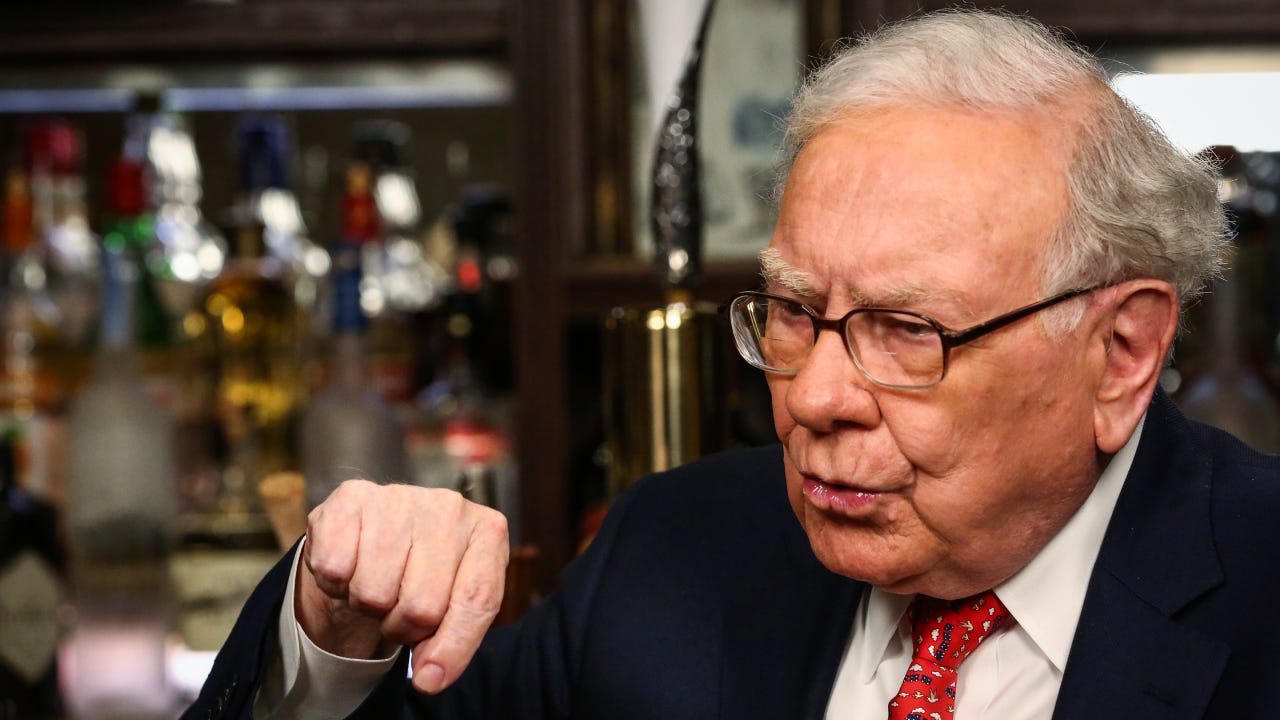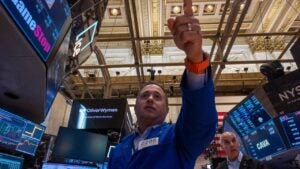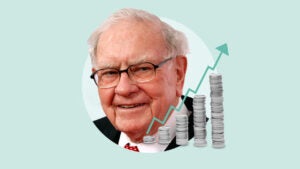4 key lessons following Warren Buffett’s move to sell half of Berkshire Hathaway’s Apple stock

Warren Buffett sold roughly half of Berkshire Hathaway’s stake in Apple during the second quarter and revealed a record cash pile of more than $270 billion at the end of June, contributing to investor concerns about a possible recession.
Apple remained Berkshire’s largest stock position at the end of the second quarter, worth $84.2 billion, down from $174.3 billion at the end of 2023. Buffett started selling Apple in the fourth quarter of last year, but the selling has accelerated in 2024.
Buffett praised the iPhone-maker’s business at Berkshire’s annual meeting in May, saying that it was very likely to remain Berkshire’s largest position at the end of 2024 and that it would likely continue to hold Apple after he’s no longer running the company.
Buffett’s decision to reduce Berkshire’s Apple holdings provides some key lessons that individual investors can learn from when managing their own portfolios. Here are the key takeaways.
Buffett sells Apple: 4 things investors can learn
1. Benefits of portfolio rebalancing
By selling Berkshire’s largest position, Buffett is reducing the impact it will have on Berkshire’s value going forward. If Berkshire hadn’t sold any of its Apple shares, the stake would have been worth nearly $200 billion at the end of June, compared to Berkshire’s market cap of about $890 billion. Even if Buffett still likes Apple’s business, a stake that large would have an outsized impact on Berkshire over time.
Individual investors can also benefit from periodic portfolio rebalancing. While you may not have an individual stock that has grown as much as Apple, there may be funds you hold that account for a larger portion of your portfolio than you originally intended. Reducing those holdings and adding to positions that have lagged can be an effective way to manage risk in your portfolio.
2. Valuations matter
No matter how good a business is, its price can get to a level where investors aren’t able to earn an attractive return over the long term. When Berkshire first bought Apple in 2016 it sold for about 10 times its annual earnings per share. Over time, that price-earnings ratio has expanded and is now around 30.
Buffett may still love Apple’s business characteristics as much as he did when he established the position, but there’s a big difference between paying a P/E multiple of 10 versus 30. Companies need to grow earnings at a high rate to justify their high multiples and for a company as large as Apple, that’s not as easy as it once was.
3. Don’t ignore taxes
Buffett has said that many investors focus too much on avoiding taxes. With capital gains taxes, you don’t owe any taxes until the gain is realized, that is until you’ve sold some of the investment. Buffett clearly doesn’t mind paying taxes on gains at today’s low rates when they could be higher down the road.
“We are paying a 21 percent federal rate on the gains we’re taking in Apple,” Buffett told shareholders in May. “That rate was 35 percent not that long ago and it’s been 52 percent in the past when I’ve been operating.”
“I would say with the present fiscal policies, I think that something has to give and I think that higher taxes are quite likely,” Buffett said.
4. Learn from past mistakes
One interesting aspect of Buffett selling Apple is the similarity with another Berkshire investment that once reached an elevated valuation: Coca-Cola. In the late 1990s, shares of Coca-Cola had skyrocketed from Berkshire’s initial purchase in the late 1980s and traded for around 40 times earnings.
Buffett was on Coca-Cola’s board of directors at the time, a position that made it difficult for him to sell the stock, even though he likely knew it was overvalued. Buffett’s longtime business partner Charlie Munger reportedly urged Buffett to resign from Coke’s board so that Berkshire could sell its shares, according to Buffett biographer Alice Schroeder, but Buffett remained and Berkshire held its shares.
At the end of 1998, Berkshire’s Coke stake was worth $13.4 billion. Twelve years later, at the end of 2010, the stake was $13.2 billion. Berkshire collected dividends during that time, but the high multiple of the late ‘90s acted as an anchor on the stock for more than a decade. Buffett seems determined to avoid the same mistake with Berkshire’s Apple shares.
Editorial Disclaimer: All investors are advised to conduct their own independent research into investment strategies before making an investment decision. In addition, investors are advised that past investment product performance is no guarantee of future price appreciation.
Why we ask for feedback Your feedback helps us improve our content and services. It takes less than a minute to complete.
Your responses are anonymous and will only be used for improving our website.






